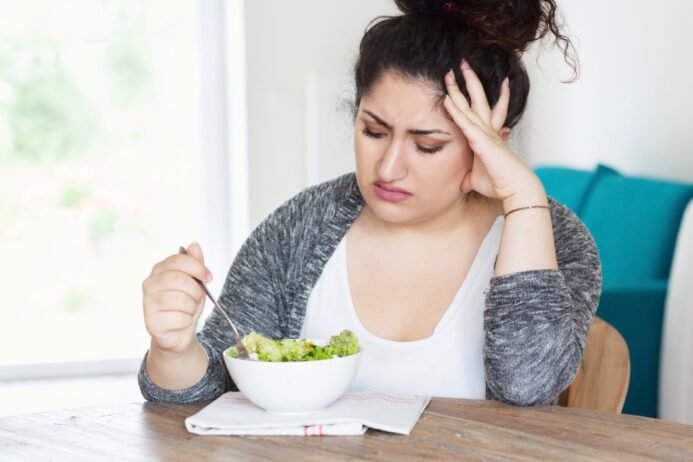Irritable Bowel Syndrome (IBS) is a common gastrointestinal disorder that affects millions of people worldwide. Characterized by symptoms such as abdominal pain, bloating, diarrhea, and constipation, IBS can significantly impact a person’s quality of life. Beyond the physical symptoms, many individuals with IBS also report experiencing food-related anxiety—a fear or stress surrounding eating due to the potential for triggering uncomfortable or unpredictable symptoms. But can IBS itself be the root cause of this anxiety? We spoke with Dr. Emily Harper, a gastroenterologist specializing in functional gut disorders, to explore this connection and offer insights into managing both IBS and the anxiety it may provoke.
Understanding IBS and Its Symptoms


IBS is a chronic condition affecting the large intestine, with symptoms that vary widely in severity and presentation. According to Dr. Harper, “IBS is a functional disorder, meaning there’s no structural damage to the digestive tract, but the gut’s motility and sensitivity are disrupted.” Common symptoms include:
- Abdominal pain or cramping, often relieved by bowel movements
- Bloating and gas
- Diarrhea, constipation, or alternating between the two
- A sense of incomplete bowel movements
These symptoms are often triggered by specific foods, stress, or hormonal changes, though triggers vary from person to person. Dr. Harper notes, “The unpredictability of IBS symptoms can make eating a source of stress for many patients, as they worry about which foods might cause a flare-up.”
The Link Between IBS and Food-Related Anxiety
Food-related anxiety is a growing concern among IBS patients. The fear of eating certain foods—or eating in general—stems from the anticipation of painful or embarrassing symptoms. Dr. Harper explains, “When someone with IBS eats a meal and experiences bloating or diarrhea shortly after, they may start to associate eating with discomfort. Over time, this can lead to a cycle where the anxiety itself worsens gut symptoms, creating a feedback loop.”
This connection is rooted in the gut-brain axis, a bidirectional communication system between the gastrointestinal tract and the brain. Stress and anxiety can exacerbate IBS symptoms by altering gut motility and increasing visceral sensitivity. Conversely, the physical discomfort of IBS can heighten anxiety, particularly around meals. “It’s not uncommon for patients to avoid social dining or restrict their diets excessively out of fear,” says Dr. Harper. “This can lead to nutritional deficiencies or social isolation, further impacting mental health.”
Can IBS Directly Cause Food-Related Anxiety?


While IBS itself is not a psychological disorder, its chronic and unpredictable nature can contribute significantly to anxiety. Dr. Harper emphasizes, “IBS doesn’t ‘cause’ anxiety in the sense of being the sole origin, but it creates a perfect storm for it. The uncertainty of when symptoms might strike, combined with the social stigma of digestive issues, can make eating feel like a high-stakes decision.”
Research supports this view. A 2023 study published in the Journal of Gastroenterology found that individuals with IBS were 2.5 times more likely to report food-related anxiety compared to those without the condition. The study highlighted that the fear of symptoms often led to restrictive eating patterns, which could exacerbate IBS symptoms due to inadequate nutrition or imbalanced gut microbiota.
Dr. Harper adds, “For some patients, the anxiety becomes so severe that it mimics symptoms of an anxiety disorder, like generalized anxiety or even panic attacks before meals. In these cases, the gut-brain axis is working overtime, amplifying both physical and emotional distress.”
Managing Food-Related Anxiety in IBS


Addressing food-related anxiety in the context of IBS requires a multifaceted approach that targets both the physical symptoms and the psychological impact. Dr. Harper offers the following strategies:
1. Work with a Specialist to Identify Triggers
A gastroenterologist or dietitian specializing in IBS can help patients identify specific food triggers through tools like a food diary or an elimination diet, such as the low-FODMAP diet. “The low-FODMAP diet, which reduces certain fermentable carbohydrates, has been shown to alleviate symptoms in about 70% of IBS patients,” says Dr. Harper. “However, it’s critical to follow this diet under professional guidance to avoid unnecessary restrictions.”
2. Cognitive Behavioral Therapy (CBT)
CBT is an evidence-based therapy that can help break the cycle of anxiety and IBS symptoms. “CBT teaches patients to reframe their thoughts about food and symptoms, reducing the fear response,” explains Dr. Harper. A 2024 meta-analysis in Gut found that CBT significantly reduced both anxiety and IBS symptom severity in patients with food-related fears.
3. Gut-Directed Hypnotherapy
This emerging therapy focuses on reducing gut sensitivity and calming the gut-brain axis. “Hypnotherapy can help patients visualize their gut functioning smoothly, which can lower anxiety and improve symptoms,” says Dr. Harper. Studies have shown that gut-directed hypnotherapy can be as effective as the low-FODMAP diet for some patients.
4. Mindful Eating Practices
Mindful eating involves paying full attention to the eating experience without judgment. “Eating slowly, chewing thoroughly, and focusing on the meal can reduce stress and improve digestion,” Dr. Harper advises. Mindful eating can also help patients differentiate between true hunger cues and anxiety-driven avoidance.
5. Medications and Supplements
In some cases, medications like antispasmodics or low-dose antidepressants may be prescribed to manage IBS symptoms or anxiety. Probiotics and peppermint oil have also shown promise in reducing bloating and discomfort, though Dr. Harper cautions, “Always consult a healthcare provider before starting supplements, as not all are effective for every patient.”
6. Support Groups and Community
Connecting with others who have IBS can reduce feelings of isolation and provide practical coping strategies. “Support groups, whether in-person or online, allow patients to share experiences and learn from others,” says Dr. Harper. “Knowing you’re not alone can be incredibly validating.”
Breaking the Cycle
The interplay between IBS and food-related anxiety can feel overwhelming, but Dr. Harper is optimistic: “With the right tools, patients can regain control over their relationship with food and reduce their symptoms.” She emphasizes the importance of a personalized approach, as IBS and anxiety manifest differently in each individual. “It’s about finding what works for you—whether that’s dietary changes, therapy, or a combination of approaches.”
If you suspect IBS is contributing to food-related anxiety, Dr. Harper recommends starting with a visit to a gastroenterologist to rule out other conditions, such as inflammatory bowel disease or celiac disease. From there, a tailored plan can help address both the physical and emotional aspects of the condition.
Conclusion
Food-related anxiety is a real and challenging aspect of living with IBS, driven by the unpredictable nature of the condition and its impact on the gut-brain axis. While IBS may not directly cause anxiety, it can significantly contribute to it, creating a cycle that affects both physical and mental health. By working with specialists, exploring therapies like CBT or hypnotherapy, and adopting mindful eating practices, individuals can manage their symptoms and reclaim their confidence around food. As Dr. Harper puts it, “IBS doesn’t have to define your life. With the right support, you can eat, live, and thrive without fear.”


